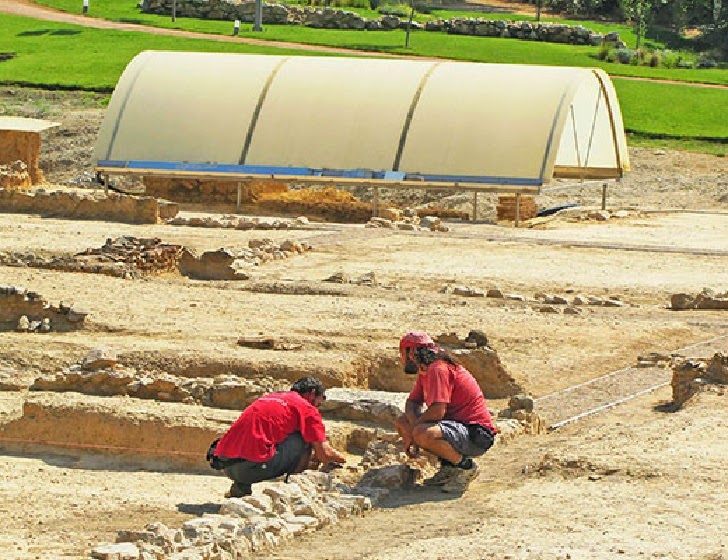One of the sites chosen as part of the green cultural routes program organized by the Culture Ministry’s Directorate of Museums, Exhibitions and Educational Programs Department was Aristotle’s Lyceum. The tour, which introduced attendees to new and exciting information about life in ancient Greece, was led by the head of the Third Ephorate of Classical Antiquities, Eleni Banou.
The Lyceum, located between the Officers Club, the Athens Conservatory and the Byzantine Museum, is poised for its grand opening. The display areas are ready, the information signs are up and the site is officially waiting for visitors. Those passing the well-tended 11,000-square meter grounds on the Culture Ministry’s tour asked Banou when the ancient philosophy school would be ready. Some of them managed to sneak in through the door on the Vassilissis Sofias side of the site to take in the ancient lyceum from up close.

Eleni Markopoulou [Credit: To Vima]
The Lyceum (first brought to light by archaeologist Effi Lygouri in 1996), was an overgrown suburb of ancient Athens named after a nearby temple dedicated to Apollo Lyceus. The archaeologists of the Third Ephorate of Classical Antiquities, which is responsible for the site, want it to become a part of Athenians’ everyday life, a place where visitors can take a walk, rest or read.

However, a date for its formal inauguration has not been set yet, though it is slated to take place within the next couple of months, before the end of summer.
Author: Iota Sykka | Source: ekathimerini [June 03, 2014]
VIA «Aristotle’s Lyceum in Athens almost ready to open to public»
